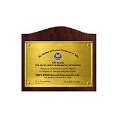

How Sore Throats Are Diagnosed?
A sore throat is a common ailment that causes dryness, pain and swelling in the throat. In most cases, it is caused by viral infections that usually resolve on their own within a week. However, when a bacterial infection is the cause—such as in strep throat—antibiotic treatment may be necessary. Doctors rely on symptom checks, physical exams, and lab tests to identify the underlying cause and guide proper treatment. Here's how sore throats are typically diagnosed.
Sore Throat: A Brief Overview
Before we get into the diagnostic procedures, here is a brief overview of a sore throat and its types.
Experts categorise this condition into three types, depending on the area impacted. They are:
• Pharyngitis
Pain, swelling and soreness are the main symptoms of this condition.
• Tonsillitis
When the tender tissue located at the back of your mouth is swollen or becomes red/sore, you are diagnosed with tonsillitis.
• Laryngitis
The larynx, or voice box, allows you to speak. When it becomes inflamed, swollen, or irritated, it can lead to laryngitis, often resulting in hoarseness or loss of voice.
The symptoms of a sore throat are:
• Dry and burning sensation in the throat
• Difficulty swallowing or eating
• Nasal congestion
• Flu-like symptoms
• Coughing and sneezing
• Body Pain
• Hoarseness in the voice
• Loss of appetite
• Swelling in the neck glands
How Are They Diagnosed?
Sore throats are accompanied by pain and a dry, itchy feeling in the throat. Doctors use different methods to diagnose this condition. They decide on the right sore throat treatment based on the causes and the area infected. Here are the diagnostic procedure:
• Talking to you in detail to understand the nature of your pain and your symptoms
• Physical examination of your throat and your neck to check symptoms like swelling, redness, inflammation, etc.
• Throat culture test, where a small sample of your throat swab is sent for testing; this will rule out other conditions like strep throat infection, COVID-19 and other viral/ bacterial infections
• A mono antibody test (referred to as a mononucleosis spot test) is recommended in case the above checks and tests are unclear; doctors rule out the condition of mononucleosis
• Further visits to an ENT or otolaryngologist as recommended by doctors to get to the root of the issue
Treatment Options
In most cases, sore throats don’t require medical treatment and tend to resolve within a week, especially when caused by viral infections. Since antibiotics are ineffective against viruses, they aren’t usually prescribed. However, if symptoms persist, over-the-counter sore throat medicine can help relieve pain and reduce fever. If a bacterial infection is diagnosed—such as strep throat—antibiotics may be necessary. It’s important to complete the full course of antibiotics as prescribed, even if symptoms improve early. Stopping treatment too soon can lead to complications such as rheumatic fever or kidney inflammation, particularly in children.
Home Remedies and Self-Care Tips
Here are some effective home remedies for throat infection:
• Get plenty of rest and try to limit talking to avoid straining your throat.
• Stay hydrated by drinking water and healthy fluids. Avoid alcohol, caffeine, and sugary drinks, as they can further dry out your throat.
• Gargle with warm salt water once or twice a day to ease irritation and reduce inflammation.
• Use a humidifier to add moisture to the air, or spend time in a steamy environment (like a sauna or hot shower) to relieve throat dryness.
• Suck on lozenges to soothe pain, but avoid giving them to children under four, as they can pose a choking hazard.
• Identify and avoid triggers such as smoke, chemicals, dry air, or acid reflux that may worsen your symptoms.
• Stay home if you have a sore throat or strep throat to prevent spreading infection and allow your body to heal properly.
Alternative Remedies and Cautions
Some people may turn to alternative options when home remedies for throat pain and antibiotics don't provide lasting relief. While these alternatives can offer short-term comfort, it's important to note that more research is needed to confirm their effectiveness. In some cases, they may also cause unwanted side effects. Common herbal ingredients used in such remedies include slippery elm, liquorice root, and marshmallow root—often found in teas, lozenges, sprays, or syrups. These herbs can help soothe the throat temporarily, but they are not suitable for children, pregnant women, or breastfeeding mothers, as they may pose health risks. Always consult a healthcare provider before trying new treatments.
Conclusion
Viral infections, bacterial infections, smoke, pollution, dry air and other irritants are the major triggers of sore throats. If you experience pain, discomfort, swelling and dryness in your throat for more than a week or 10 days, it could indicate a bacterial infection. Visit your doctor immediately and complete the entire dosage of antibiotics to avoid further health risks.
One of the important components of our overall wellness is also being financially secured. Healthcare emergencies can happen any time, but a good health insurance policy can protect you from such uncertain situations. To know more about Wellness and other health related tips, visit the wellness corner.
Disclaimer: This blog provides general information and discussions about health and related subjects. The information and other content provided in this blog, website or any linked materials are not intended and should not be considered or used as a substitute for medical advice, diagnosis, or treatment. Kindly contact your doctor before starting a new medicine or health regime.
Related Articles
Throat Infection in Babies: Causes and Remedies
Strep Throat- Symptoms and Causes
Strep Throat - Diagnosis and Treatment
What are the symptoms of Tonsilitis?
Published on July 10, 2025















 Health Insurance
Health Insurance  Travel Insurance
Travel Insurance  Car Insurance
Car Insurance  Cyber Insurance
Cyber Insurance  Critical Illness Insurance
Critical Illness Insurance
 Pet Insurance
Pet Insurance
 Bike/Two Wheeler Insurance
Bike/Two Wheeler Insurance  Home Insurance
Home Insurance  Third Party Vehicle Ins.
Third Party Vehicle Ins.  Tractor Insurance
Tractor Insurance  Goods Carrying Vehicle Ins.
Goods Carrying Vehicle Ins.  Passenger Carrying Vehicle Ins.
Passenger Carrying Vehicle Ins.  Compulsory Personal Accident Insurance
Compulsory Personal Accident Insurance  Travel Insurance
Travel Insurance  Rural
Rural